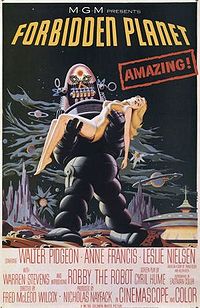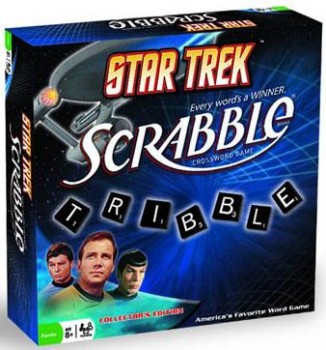Miéville
 I’m looking forward to China Miéville’s new novel, The City and the City. In the meantime, here’s an interview I did with him just as his star was ascending.
I’m looking forward to China Miéville’s new novel, The City and the City. In the meantime, here’s an interview I did with him just as his star was ascending.
 I’m looking forward to China Miéville’s new novel, The City and the City. In the meantime, here’s an interview I did with him just as his star was ascending.
I’m looking forward to China Miéville’s new novel, The City and the City. In the meantime, here’s an interview I did with him just as his star was ascending.
 I’ve only ever heard the terms ‘escapism’ and ‘escapist’ used as pejoratives and, quite often, used to describe things that I enjoy. We all know what these terms mean, and especially what they are implicitly communicating: the notion that escapist entertainment is a crutch, a way of running away from reality. But also, and I think that this is more important, that it has no redeeming value as art or as educational material.
I’ve only ever heard the terms ‘escapism’ and ‘escapist’ used as pejoratives and, quite often, used to describe things that I enjoy. We all know what these terms mean, and especially what they are implicitly communicating: the notion that escapist entertainment is a crutch, a way of running away from reality. But also, and I think that this is more important, that it has no redeeming value as art or as educational material.
But the whole thing breaks down when you look at individual cases. I think pop singing contests are the worst drek on TV, pure mind-wasters, absolute escapist fare. But most of the fiction I like, books and films, would no doubt be regarded with revulsion by a professor of modern literature who shops at the same bookstore as me. That professor of modern literature’s passionate devotion and minute study of one particular author would be seen as an indulgence in ivory tower academic fantasy by the man who installed the rain gutters on the professor’s bungalow, a man who looks forward every week to American Idol.

Dreams with Sharp Teeth was more than a quarter of a century in the making; the first footage was shot in the early 1980s and was used in a PBS special; the film-makers kept coming back for more until they had a feature-length documentary (including lots of older material) which premiered in April 2007. It’s about someone named Harlan Ellison. If you have never heard of him, this movie is not your best possible introduction to one of the great American fantasists. If you are one of the legions of people who hate Harlan J. Ellison’s guts, you will not want to see this movie, unless you enjoy the sensation of hating the guts of someone lots of other people seem to love. Anyone not in these two groups will probably find stuff to like and dislike in this movie.
Harlan Ellison escapes from various perils and lives happily (if somewhat angrily) ever after. That was an unannounced spoiler. More details beyond the jump.
 Risus: The Anything RPG
Risus: The Anything RPG
By S. John Ross
I seem to have gotten into a Rules-Lite RPG series here at Black Gate. Not sure how that happened. I didn’t plan it, I know that for certain…
A few weeks ago, I reviewed one of the classics of “beer-and-pretzels” role-playing games, Kobolds Ate My Baby! Although a great game, KAMB! uses a specific (comically specific) setting with rigid character types. If you want to unleash a beer-and-pretzels RPG night without any limitations, you will want to turn to Risus, a generic system perfect for the slam-bang quick gag game.
Risus takes the term “rules-lite” and goes to the minimum with it: the whole system fits comfortably onto six PDF pages you can download here. I have to take caution with this review, because I might risk writing one that’s longer than the review subject. But those six pages provide only a blueprint for endless parody-RPG weirdness; I’m reviewing the experience you might get from putting Risus into practice.
 Who knew? The national weekly Micky Maus, featuring mainly Donald Duck, sells 250,000 copies in German, beating out Superman. Another 40,000 mostly adult readers snap up the monthly all-Donald specials. The fan organization D.O.N.A.L.D. (an acronym for “German Organization for Non-commercial Followers of Pure Donaldism”) holds a yearly convention, philosopher Max Horkheimer admitted to reading Duck comics at bedtime, and many Germans credit the Donald with introducing them to the literary classics. He remains the most popular children’s comic in Germany.
Who knew? The national weekly Micky Maus, featuring mainly Donald Duck, sells 250,000 copies in German, beating out Superman. Another 40,000 mostly adult readers snap up the monthly all-Donald specials. The fan organization D.O.N.A.L.D. (an acronym for “German Organization for Non-commercial Followers of Pure Donaldism”) holds a yearly convention, philosopher Max Horkheimer admitted to reading Duck comics at bedtime, and many Germans credit the Donald with introducing them to the literary classics. He remains the most popular children’s comic in Germany.
As Susan Bernofsky writes in the May 23 Wall Street Journal, it’s because Disney’s German licensee, Ehapa, retained artistic control over the translations. Donald was introduced during the years following World War II, when school officials were setting fire to American comics and some were proposing laws to ban comic books altogether. Ehapa hired a Dr. Erika Fuchs, who had never laid eyes on a comic before she was handed her first Donald Duck story. Her job was to breathe a little erudition into Disney. In her version, Donald quotes (and misquotes) Schiller and Goethe, he’s prone to philosophical musings, and even ordinary dialogue is cranked up: “I’d do anything to break this monotony!” becomes: “How dull, dismal and deathly sad! I’d do anything to make something happen.” A cat belts Wagner. And through it runs a vein of political critique, mostly, it seems, aimed at Nazism and intolerance.
Dr. Fuchs supplied the German for Donald Duck for a rather amazing 54 years, until her death in 2005.
 Given all the discussion of late about reboots, I wonder why no one has ever thought to revisit this classic. Forbidden Planet was my Star Wars when I was in fifth grade. In the New York metro area, Channel 9 had a feature called “Million Dollar Movie” that used to play a particular movie ever day throughout the week in the early evening. Forbidden Planet was a regular staple, and whenever it was in rotation, I was there in front of the TV (which, to give you an idea of how old I am, displayed only black and white).
Given all the discussion of late about reboots, I wonder why no one has ever thought to revisit this classic. Forbidden Planet was my Star Wars when I was in fifth grade. In the New York metro area, Channel 9 had a feature called “Million Dollar Movie” that used to play a particular movie ever day throughout the week in the early evening. Forbidden Planet was a regular staple, and whenever it was in rotation, I was there in front of the TV (which, to give you an idea of how old I am, displayed only black and white).
One of the things that was particularly cool about this flick is that it opened up a window to the nomenclature of Freudian repression and Shakespeare, all dressed up in space adventure. My guess is that a reboot would probably ruin it; for every Star Trek or Batman there’s A War of the Worlds starring Tom Cruise…
I’m not saying I want to see a remake, but given the limited imagination of much commercial filmdom, I wonder why no has considered it.
 The notion of the female warrior, while rooted somewhat in factual history (e.g., Joan of Arc), is largely an idealized notion of mythology, science fiction and fantasy. I suppose there is doctoral dissertation potential in figuring out why patriarchal societies that at best otherwise relegate women to supportive roles away from the battlefield (and at worst and more typically brutally victimize women as spoils of war) generate these tales of powerful females who can lop off a head or two as well as the next guy. Speaking as a guy whose adolescent sexual fantasies were heavily influenced by Emma Peel, the black leather-clad consort of John Steed in saving the free world from various madmen bent on world domination by delivering a quick blow to the groin, I’m guessing it’s some kind of inversion of castration anxiety.
The notion of the female warrior, while rooted somewhat in factual history (e.g., Joan of Arc), is largely an idealized notion of mythology, science fiction and fantasy. I suppose there is doctoral dissertation potential in figuring out why patriarchal societies that at best otherwise relegate women to supportive roles away from the battlefield (and at worst and more typically brutally victimize women as spoils of war) generate these tales of powerful females who can lop off a head or two as well as the next guy. Speaking as a guy whose adolescent sexual fantasies were heavily influenced by Emma Peel, the black leather-clad consort of John Steed in saving the free world from various madmen bent on world domination by delivering a quick blow to the groin, I’m guessing it’s some kind of inversion of castration anxiety.
During science fiction’s New Wave movement in 1960s, a fecund period of feminist fiction in general, the mythos of the female warrior served as an apt metaphor. Joanna Russ’s renowned series of stories collected as The Adventures of Alyx depict the titular heroine as both sensual and tough, a thief and assassin who, in breaking with the stereotype, isn’t Amazonian beauteous. Also breaking the mold is that Alyx is not depicted consistently throughout the series, though the one constant is that she is a “real” person, as opposed to the cliché of the one dimensional fantasy hero, male or female. Alyx was an inspiration for many genre writers, in particular Mary Gentle, whose “realistic fantasies” typically feature a strong, but flawed (as is of course any human) warrior woman, most notably in Ash: A Secret History.
…
 Recently I had occasion to visit the toy store — a rarity in a life spent avoiding children as much as possible — and was sort of blown away by how different it was than I remembered. The last time I was in a toy store was probably as a pre-teen buying Advanced Dungeons & Dragons books (yes, unbelievable as it seems, Fiend Folio and Unearthed Arcana used to share self space with Teddy Ruckspin and Cabbage Patch Kids at the local Toys ‘R Us) and, while I wasn’t surprised to see a complete lack of anything RPG in my visit, what did impress me is just how much fantasy and scifi oriented material I did find — you might even say the place was a juvenile spec fic warehouse, though with a side order of dinosaurs, pirates, and the occasional pony.
Recently I had occasion to visit the toy store — a rarity in a life spent avoiding children as much as possible — and was sort of blown away by how different it was than I remembered. The last time I was in a toy store was probably as a pre-teen buying Advanced Dungeons & Dragons books (yes, unbelievable as it seems, Fiend Folio and Unearthed Arcana used to share self space with Teddy Ruckspin and Cabbage Patch Kids at the local Toys ‘R Us) and, while I wasn’t surprised to see a complete lack of anything RPG in my visit, what did impress me is just how much fantasy and scifi oriented material I did find — you might even say the place was a juvenile spec fic warehouse, though with a side order of dinosaurs, pirates, and the occasional pony.
But that is sort of obvious, right? SF and fantasy have always been big components of children’s toys, especially for boys, at least since the Star Wars explosion of the late seventies. And that’s true of course, though things seem far slicker and better presented these days (thinking especially of the tremendous Star Trek display I saw as soon as I walked in the door — kids today just don’t stand a chance against stuff like that). And all that big name, blockbuster-fodder stuff was there in abundance, and had permeated down to the smallest level and mutated into weird, unexpected forms: a Transformers chess set, Star Wars Battleship, and the mesmerizingly implausible Star Trek Scrabble (!?!).
The cross-genrefication of all genres has produced some interesting work. It’s true that if someone describes a book as “steampunk slash horror slash fantasy slash splatterpunk slash slash with a pinch of oregano” I’m likely to quietly sidle away, assuming that the project is too high-concept to include conveniences like characterization, plot and verbs other than slash. But the conventions of certain genres seem to me to have a hey-you-got-peanut-butter-in-my-chocolate kismet about them. I’m thinking specifically of the Western and horror. Zombies in the old West? Transdimensional gunslingers? Billy the Kid vs. Dracula? Why not? The images mingle pleasantly and unexpectedly. Maybe it’s because both sets of images have a certain stark moodiness to them, when done well.
Cherie Priest’s Dreadful Skin is a newish (2008) entry into this not-altogether-new cross-genre. In it, a renegade Irish nun pursues a serial-killing werewolf across America in the 1870s. The concept raised hopes higher than the book actually delivered to me, but it’s well-written, covers some interesting ground, and I wasn’t sorry I’d read it. Hackle-raising (or at least heckle-raising) details after the jump.
I made a fascinating discovery today. I was reading one of the books by the dead George Carlin (if I called him ‘the late’ or ‘the lamented’ George Carlin, he would rise from the dead and crush my skull), enjoying some great laughs from his satirical observations about people and government. I then put down that book and picked up a collection of essay by the equally dead philosopher Bertrand Russell. And I found that his opinions, tone, and attitudes were exactly the same as Carlin’s. Not only that, they were just as funny. “Another way in which good men can be useful is by getting themselves murdered.” That’s brilliant. I realized at that instant that George Carlin is Bertrand Russell as a stand-up act.
I’m telling you all this to fill up space on this post. I’ve had a busy weekend, most of it a highly positive busy, but nonetheless busy. So I haven’t had the opportunity to carefully craft one of my more ponderous reviews. So instead I’ll sling at you a writing exercise that I did a few weeks ago. Writers looking for an engaging experiment might want to try it.